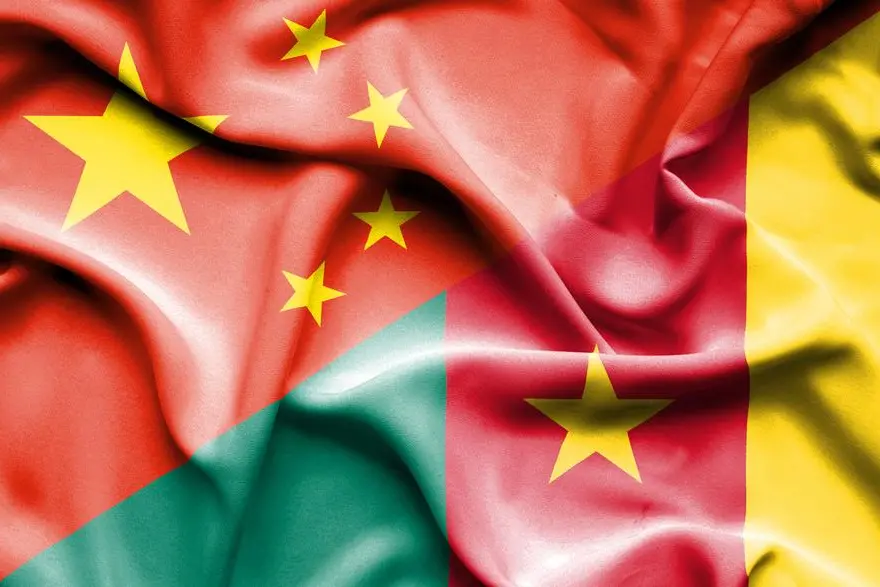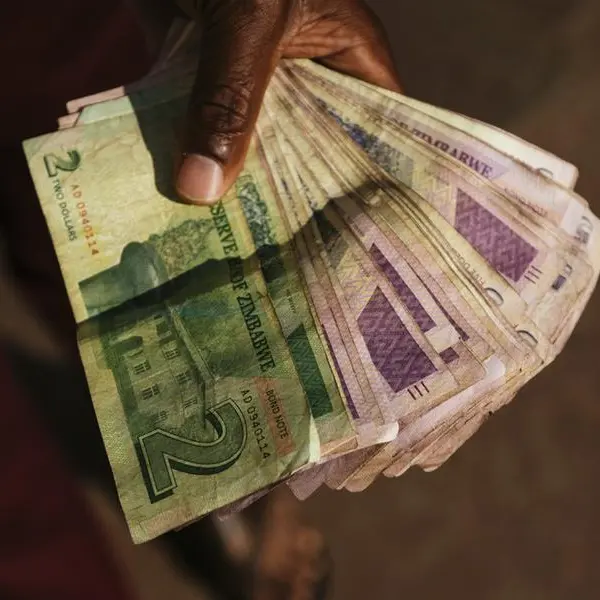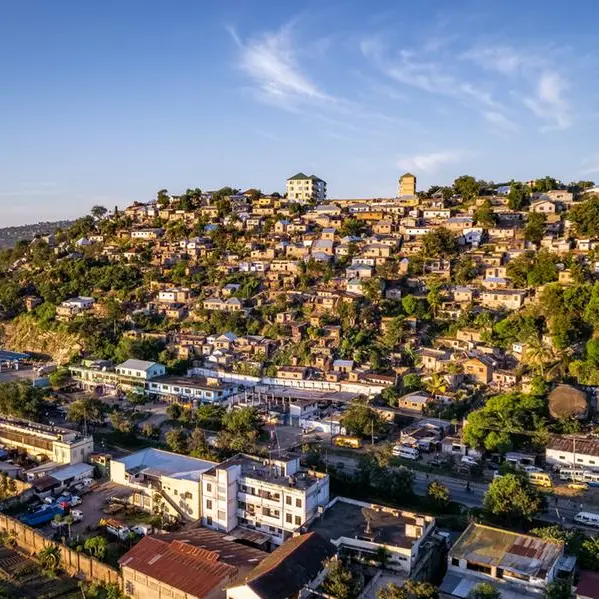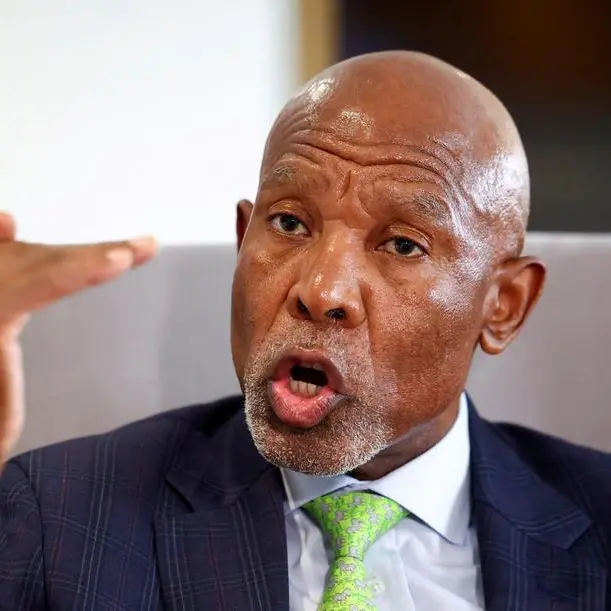PHOTO
Cameroon has become the latest country to receive an office donation from the Chinese, reflecting Beijing’s continued policy of using real estate to cement its influence on the continent.
When the Cameroon's parliament reconvenes in November for the third and last ordinary session for the 2024 legislative year, members of the National Assembly, the lower House, expect to be ushered into a new and better equipped plenary hall.
The 400-seat hemicycle is part of a new parliamentary complex nearing completion in the capital, Yaoundé. The complex also includes a 14-storey administrative building and a banquet hall.
The complex is worth 55 billion Central African CFA francs ($93 million) and could be a landmark for the capital, a gift from China. The Chinese government expects to officially hand it over to Cameroon later this year."Work has progressed so fast, and construction works is at 97 percent. I think that if everything works as planned, the November session of Parliament will hold in the new building,” said Theodore Datouo, deputy speaker of Cameroon's National Assembly, who also chairs a committee overseeing the project's technical construction.
On September 19, Datouo led a delegation, including the Speaker of the National Assembly Cavaye Yeguie Djibril, on an inspection tour of the project, which is being carried out by the Beijing Urban Construction Group.
During a working visit to Cameroon in January this year, Chinese Vice Prime Minister Liu Guozhong, who is also a member of the Central Committee of the Political Bureau of the Communist Party of China, inspected the construction project.
He also met with Cameroon’s President Paul Biya and Prime Minister Joseph Dion Ngute, where they reaffirmed the diplomatic ties between the two nations established 52 years ago.
During a bilateral meeting with his Chinese counterpart at the 4th Summit of the Forum on China-Africa Cooperation (Focac) in Beijing last month, President Biya “solemnly invited” Xi Jinping to Cameroon for the official inauguration of the Parliament building, which is just one of several Chinese-funded infrastructure projects in the country.
Chinese firms have won several infrastructure contracts in Cameroon mostly financed by the Export-Import Bank of China (China Eximbank). The Chinese government's footprint is visible in the construction of dams, roads, ports, railways, transport, water and sanitation.
Office gifts in AfricaBut Cameroon is not the first African country to receive an office gift from the Chinese. Zimbabwe received a new Parliament building last year, funded by the Chinese as a "gift of friendship from Beijing".
Before that, the Chinese built the new headquarters of the African Union in Addis Ababa, expanding its working and meeting space.
China is also constructing the headquarters of the Djibouti-based Intergovernmental Authority on Development (Igad), the regional bloc for the Horn of Africa countries, including Kenya, Somalia, Ethiopia and Djibouti.
Beijing had previously pledged to construct Kenya’s foreign ministry head offices in Nairobi but that work has yet to begin.
For the Chinese, such offices are symbols of friendship but critics have argued that they allow Beijing to tap conversations.
Beijing has previously denied allegations that it was eavesdropping on conversations at the AU after a French newspaper revealed that some communications equipment installed there was wired to servers in Shanghai.
China is using real estate and infrastructure to exert its influence on the continent. It has built some $150 billion worth of structures across the continent in the last 15 years.
In Cameroon, among the projects funded by the Asia country include the Yaoundé Conference Centre inaugurated in May 1982, the gynaecological-obstetric and paediatric hospitals in Yaounde and Douala inaugurated in 2003 and 2015 respectively and the Yaounde Multipurpose Sports Complex inaugurated in 2019.
It also built the football stadiums of Limbe and Bafoussam, which hosted the 2021 African Cup of Nations (Afcon).
Constructed by China Harbor Engineering Company (CHEC), the Kribi Deep Seaport received five new cranes from Shanghai Zhenhua Heavy Industries Company Limited last month marking the first use of the new 715-metre dock.“Today’s arrival marks the beginning of important developments, including the arrival of additional RTG cranes in October and the full completion of construction expected by December 2024,” the maritime institution said on September 13.
A month earlier, Cameroon’s Minister of Water Resources and Energy, Gaston Eloundou Essomba commissioned a Chinese-built water plant and ancillary facilities designed to address the chronic potable water crisis in the capital. The $798 million Cameroon Water Production and Supply Project, built by China Machinery Engineering Corporation (CMEC), was commissioned on August 20.
Eloundou Essomba the plant would deliver 250,000 cubic metres of water day to meet the capital's deficit. The plant is expected to supply 300,000 cubic metres of potable water and can be expanded to 400,000 cubic metres per day.
Despite these projects, Cameroon has asked for more, and China has expressed a willingness to upgrade diplomatic ties with the economic engine of the central Africa region.
When Biya and Xi met on September 4, 2024 ahead of the official opening of Focac in Beijing, the Cameroonian President invited China to invest in his country’s “second-generation flagship projects”, which he said would be launched soon.
Several road projects are scheduled to start this year, which Biya said represent key investment opportunities for the Cameroonian government and Chinese companies.
Cameroon’s Minister of Public Works was expected this week to launch the second phase of the Yaounde-Douala expressway, a contract awarded to China First Highway Engineering Corporation (CFHEC). The 141.1km highway is expected to improve transport links between Cameroon’s two largest cities and ease traffic congestion on the Douala-Ndjamena road.
Sino-Cameroonian relations have grown significantly in recent years, largely due to Chinese investment in the country’s infrastructure and economic development. But while these investments have undoubtedly brought notable benefits, they also pose certain challenges, says Cameroonian economist Dr Kennedy Tumenta.“Chinese investments have significantly boosted Cameroon’s infrastructure and enhanced Cameroon’s trade capabilities,” he says.“However, many projects rely on Chinese labour, limiting local job creation and economic growth. To capitalise on its strategic location, Cameroon should attract diverse investment, particularly from Chinese firms, to establish manufacturing hubs for exports to Europe, the US, and within the African Continental Free Trade Area”.
On the sidelines of the Focac, Biya granted audiences to several Chinese business leaders, including the director-general of CHEC, which built the Kribi Deep Seaport.
At the Focac, President Xi committed over $51 billion in fresh funding for African countries over the next three years.
If you doubt it, look at Beijing pactsWhile infrastructure development is crucial for a thriving political economy, outsourcing it is tricky, according to Prof Tatah Mentan, a Cameroonian political economist.“The problem with outsourcing infrastructure is that the documents can be leaked to a hostile aggressor,” Prof Mentan says.“Meanwhile, grabbing loans from all over encourages the squandering of national resources,” he adds. This financing mechanism, he says, does not make for self-reliant development, but rather “children are born into debt”.
According to Cameroon’s National Institute of Statistics (INS), China emerged as the largest investor in the country in 2023, contributing an estimated $799 million in foreign direct investment (FDI). However, China is also Cameroon’s leading creditor, surpassing the World Bank and the International Monetary Fund (IMF). With new projects on the horizon, Cameroon’s debt to China is expected to increase further. © Copyright 2022 Nation Media Group. All Rights Reserved. Provided by SyndiGate Media Inc. (Syndigate.info).





















